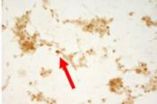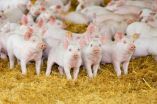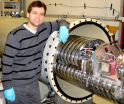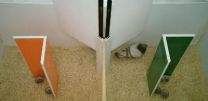(Press-News.org) While many scientists are trying to prevent the onset of a cancer defense mechanism known as autophagy, researchers at Virginia Commonwealth University Massey Cancer Center are leveraging it in a new therapy that causes the process to culminate in cell death rather than survival. The novel treatment strategy targets the p62 protein, which is often referred to as the "Trash Man" due to its role in disposing unwanted cellular proteins during autophagy. Results from preclinical experiments suggest this experimental treatment approach could be particularly effective against multiple myeloma and potentially other forms of blood cancers.
Cancer therapies cause unwanted proteins to accumulate in cancer cells, which can trigger a form of cell suicide known as apoptosis. To survive, the cells break down the excess proteins through autophagy, from a Greek term meaning "self eating." In a study recently published in the journal Molecular and Cellular Biology, scientists induced autophagy using the anti-tumor drug obatoclax while simultaneously blocking the production of p62 using a drug known as a cyclin-dependant kinase (CDK) inhibitor. Several experiments involving animal models and cultured multiple myeloma cells demonstrated that blocking p62 disrupted autophagy and killed far more cancer cells than administering the anti-cancer agents alone.
"Therapies that are designed to block the early stages of autophagy do not offer the possibility of exploiting its potentially lethal effects," says Steven Grant, M.D., Shirley Carter Olsson and Sture Gordon Olsson Chair in Cancer Research, associate director for translational research and program co-leader of Developmental Therapeutics at VCU Massey Cancer Center. "Our strategy turns autophagy from a protective process into a toxic one, and these results suggest it could increase the effectiveness of a variety of cancer therapies that induce autophagy."
Critical to the success of this therapy is Bik, a protein that plays a significant role in governing cell death and survival. During cancer treatments, Bik accumulates in cancer cells until it triggers apoptosis. Normally, the cancer cells would induce autophagy and p62 would rid the cells of Bik by loading the proteins into degradation chambers known as auotophagosomes for disposal. However, blocking p62 production results in an inefficient form of autophagy and the accumulation of Bik eventually causes the cancer cells to undergo apoptosis.
This research builds upon more than a decade of work by members of Grant's laboratory investigating novel treatment strategies and combination therapies that selectively kill multiple myeloma and other blood cancer cells. The technology in his study has been made available for licensing through the VCU Office of Research.
"We are now working to identify additional CDK inhibitors that can be used to disrupt autophagy," says Grant. "The ultimate goal will be to translate these findings into a clinical trial to test the therapy in patients with various blood cancers."
INFORMATION:
Grant collaborated with the study's lead co-authors, Yun Dai, M.D., Ph.D., and Shuang Chen, M.D., Ph.D., who spearheaded this work, as well as Liang Zhou, Yu Zhang, Ph.D., Xinyan Pei, M.D., Ph.D., and Hui Lin, M.D., all from the Department of Internal Medicine at the VCU School of Medicine; Yun Leng, M.D., from the Multiple Myeloma Research Center of Beijing; and Richard Jones, Ph.D., and Robert Orlowski, M.D., from MD Anderson Cancer Center.
This research was supported by National Institutes of Health grants P50 CA142509-01, CA100866 and CA93738; the Multiple Myeloma Research Foundation; the Leukemia and Lymphoma Society of America; and, in part, by National Cancer Institute Cancer Center Core Grant P30CA016059 and Center Core Grant 5P30NS04743.
The full manuscript of this study is available online at: http://mcb.asm.org/content/early/2014/07/01/MCB.01383-13.full.pdf+html.
Promising new cancer therapy uses molecular 'Trash Man' to exploit a common cancer defense
2014-08-27
ELSE PRESS RELEASES FROM THIS DATE:
Dartmouth isolates environmental influences in genome-wide association studies
2014-08-27
(Lebanon, NH 8/27/14)—Dartmouth cancer researchers developed and tested an advanced statistical model to evaluate the genetic and environmental interactions that contribute to disease as published yesterday in Human Genetics.
The approach fills a gap in current analyses. Complex diseases like cancer usually arise from complex interactions among genetic and environmental factors. When many such combinations are studied, identifying the relevant interactions versus those that reflect chance combinations among affected individuals becomes difficult. In this study, the ...
Veld Fires in South Africa
2014-08-27
South Africa is entering what is described by the Volunteer Wildfire Services of South Africa as "Cape Fire Season." The Eastern Cape provincial government warned residents in certain parts of the province on Monday (8/25) of strong winds and veld fires. A high veld fire danger rating is expected in the north-western interior and along the coast in the Great Kei and Mnquma area. Strong winds often occurred along coastal regions, and during thunderstorms. The thunderstorms bring lightning strikes and subsequent fire and the wind serves to spread the fire from one place ...
Karina's remnants drawn into Hurricane Marie's spin
2014-08-27
Karina finally became a remnant low pressure area after roaming around in the Eastern Pacific for two weeks. Satellite data on August 27 showed that the now shapeless former hurricane was being drawn into nearby Hurricane Marie's circulation.
The last bulletin on Karina was issued by the National Hurricane Center on August 27 at 0300 UTC (11 p.m. EDT on Tuesday, August 26).
At that time, Karina's maximum sustained winds were near 30 mph (45 kph). It was centered near latitude 15.9 north and longitude 126.5 west. That's 1,185 miles (1,905 km) west-southwest of the southern ...
Group identity emphasized more by those who just make the cut
2014-08-27
People and institutions who are marginal members of a high-status or well-esteemed group tend to emphasize their group membership more than those who are squarely entrenched members of the group, according to new research published in Psychological Science, a journal of the Association for Psychological Science.
Research has long shown that people prefer to be in groups that are thought to have higher status or cultural value as a way of boosting self-image and projecting an impressive image to others. Despite the fact that separations between groups are often arbitrary, ...
Baicalin suppresses iron accumulation after substantia nigra injury
2014-08-27
A growing number of studies have shown that excessive iron is closely associated with the pathogenesis of Parkinson's disease. Previous studies from Chunyan Guo and co-workers from Capital Medical University in China have shown that baicalin prevented iron accumulation after substantia nigra injury, reduced divalent metal transporter 1 expression, and increased ferroportin 1 expression in the substantia nigra of rotenone-induced Parkinson's disease rats. However, the relationship between iron concentration and transferrin expression is still unclear. Based on the previous ...
Factors predicting functional recovery of the upper limb after peripheral nerve injuries
2014-08-27
Currently, the main factors thought to be associated with outcomes after the repair of peripheral nerve injuries are the age of the patient, mechanism of injury, nerve injured, injury location, defect length, repair time, repair method, operation technique, and repair materials. However, despite numerous studies of outcomes after the repair of peripheral nerve injuries, there is no agreement regarding the independent predictors of a good prognosis, and the dose-effect relationship of the predictors has not been quantified. A study by Dr. Bo He and co-workers from the First ...
Gifts that generate gratitude keep customers loyal
2014-08-27
Despite major retailers investing tens of millions of dollars a year into loyalty programs, they are a dying breed, with customers struggling to see the benefits of signing up, according to QUT research.
But benefits that stimulate gratitude in customers have the power to strengthen the seller-customer relationship and ensure loyalty, researchers Dr Syed Hasan, Professor Ian Lings, Associate Professor Larry Neale and Dr Gary Mortimer, from QUT's School of Advertising, Marketing and Public Relations, found.
Lead researcher Dr Hasan, a Postdoctoral Research Fellow, said ...
Piglet weaning age no bar to litter frequency
2014-08-27
University of Adelaide research has shown that piglets can be weaned later with no negative effects on sow birthing frequency.
The outcome of the study at the University's Roseworthy campus, published in the journal Animal Reproduction Science, is an important finding for pig producers. It allows improvements in piglet health and welfare without loss of production.
"Sows don't usually start their oestrous cycles again during lactation, only coming on heat after their piglets have been weaned," says Ms Alice Weaver, PhD candidate with the School of Animal and Veterinary ...
Measurement at Big Bang conditions confirms lithium problem
2014-08-27
The field of astrophysics has a stubborn problem and it's called lithium. The quantities of lithium predicted to have resulted from the Big Bang are not actually present in stars. But the calculations are correct – a fact which has now been confirmed for the first time in experiments conducted at the underground laboratory in the Gran Sasso mountain in Italy. As part of an international team, researchers from the Helmholtz-Zentrum Dresden-Rossendorf (HZDR) studied how much lithium forms under Big Bang conditions. The results were published in "Physical Review Letters".
Lithium, ...
Gamblers are greedy bird-brains, University of Warwick research finds
2014-08-27
Gamblers are greedy bird-brains, University of Warwick research finds
Gamblers show the same tendencies as pigeons when they make risky decisions, new research has shown.
Researchers, led by Dr Elliot Ludvig of the University of Warwick's Department of Psychology, conducted tests that found that both human gamblers and pigeons were 35% more likely to gamble for high-value than low-value rewards.
Published in Biology Letters, the researchers argue that the test results show the important role that memories of previous biggest wins and losses play when we make risky ...




